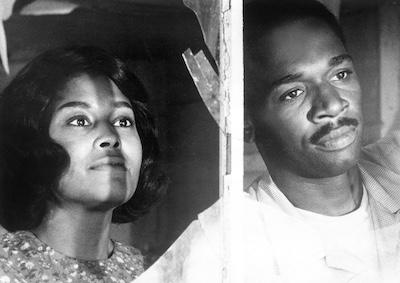A prolific actor, director and producer, Ivan Dixon (1931–2008) was part of a generation of Black entertainers who fought not only for more professional opportunities, but for more nuanced portrayals of Black characters on screen. According to his daughter Doris Nomathande Dixon, he was most proud of his acting in the independent Nothing but a Man (1964) and his directing and producing of the cult classic The Spook Who Sat by the Door (1973), both of which are featured in our weekend program.
A native of Harlem, Dixon graduated with a degree in drama from the historically Black institution North Carolina Central University in 1954. After appearing on Broadway and in small television roles, Dixon eventually broke into acting in films by working as a stand-in and stunt double for Sidney Poitier. While doing press for his Emmy-nominated title role in “The Final War of Olly Winter,” Dixon said in a 1967 Sunday edition of The New York Times: “You would have to be kind of nuts to stay an actor. Most of the people in my college group became teachers and social workers. They would have loved to stay in acting and many were much better than I. But what was the use when there were two roles a year and both of them played by Sidney Poitier?” Through Negro Actors for Action, Dixon worked to increase the opportunities for Black actors in Hollywood and helped integrate American television. While his most well-known role is Sgt. James Kinchloe on the sitcom Hogan’s Heroes, behind the camera Dixon went on to direct over 100 episodes of television (The Rockford Files, Magnum P.I., The Waltons). In Spencer Moon’s book Reel Black Talk, Dixon summed up his career this way: “I believe I’ve worked as much or more than some people who acceded to other’s demands and attitudes. By going my own way, I think I’ve worked as much as anybody.”—Beandrea July
Special thanks to our community partners: Black Image Center, Black Women Directors, Platform UCLA, UCLA Alumni Association, UCLA Department of History.






 Mobile Navigation
Mobile Navigation





